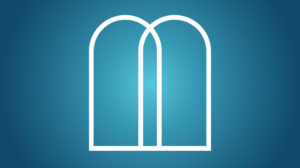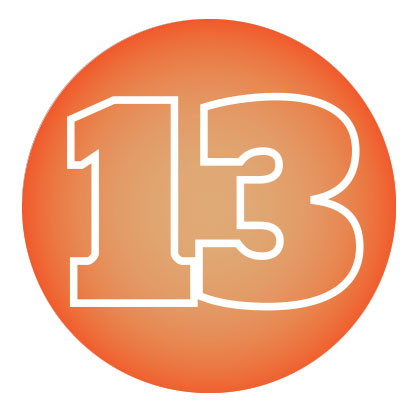The Gift That Keeps on Giving

Gift-giving is an art. It doesn’t end with selecting the item. There’s the wrapping, the presentation, the card. And, of course, the bestowal itself: striking just the right chord of generosity and
Gift-giving may be an art, but at least it has closure. Then it’s the receiver’s turn. He’s the one who completes the transfer of ownership by accepting, acknowledging, and expressing appreciation gracefully. But that’s not all. A proper recipient uses his gift well, in the spirit in which it was intended. This is his most demanding role, for it can continue for a long time. Sometimes, depending on the magnitude of the item, in perpetuity.
Occasionally, the receiver spurns the gift. Is it the giver, or the item itself, that he’s rejecting? The most famous, and certainly the most crucial, rebuff took place over three millennia ago when the Creator offered His Torah to the nations of the world. Every schoolchild knows the story of their pointed queries about the Torah, their subsequent refusals, and, in contrast, Klal Yisrael’s eager acceptance without much foreknowledge of what lay inside the gift wrap.
Gift or Purchase?
Rav Zev Leff pins down the glaring contrast between the attitudes of the descendants of Yishmael and Eisav, and the children of Avraham, Yitzchak, and Yaakov. The former asked, “What is written in Your Torah?” It was not only their ultimate refusal, but also their need to know the contents of the gift in advance, that made all the difference. Why?
Typically, when a gift is delivered, it’s unnecessary and inappropriate to ask about its contents; the recipient has almost nothing to lose by accepting it sight unseen. Klal Yisrael didn’t request any information because they perceived Torah as the ultimate gift, from the greatest of all Givers.
But what if the offer is an opportunity to purchase the item? Then, the receiver is no longer a beneficiary. He’s a customer, a buyer who has every right to decide where to invest his funds. Thus the nations’ request for information revealed much more than curiosity on their part. It demonstrated that they viewed Torah as a purchase, something that would cost them. More than money, it would demand a complete overhaul of their lifestyle. The price, they concluded, was not worth the merchandise.
Wresting with Angels
Here’s a quick quiz: On what date did we receive this gift of Torah? If you’re familiar with the Jewish calendar, and are feeling confident about your answer, don’t be. Although Shavuos is celebrated annually on the sixth of Sivan, the Gemara tells us that kabbalas haTorah occurred a day later than planned, on the seventh of the month!
In order to explain this discrepancy, let us visit the heavenly realm and listen in on a historic conversation that took place when Moshe first ascended to receive the Torah. The Midrash relates that the malachim originally balked at the notion of this gift:
Ribbono shel Olam, why is a human being among us?
He is here to receive the Torah.
You’re giving away the treasure which You’ve kept hidden for 974 generations, to a mortal?
[Hashem said to Moshe]: Hold on to My heavenly throne and answer them.
Moshe said, Ribbono shel Olam, what is written in Your Torah?
“Anochi Hashem Elokecha, I am the G-d Who took you out of Egypt.”
[To the malachim]: Are you the ones who were exiled to Egypt? Were you enslaved to Pharaoh?
What else does the Torah command?
“Remember the Shabbos day to keep it holy.”
Do you perform melachah [work] from which you need to abstain on Shabbos?
What is another command?
“Honor your father and mother.”
Do you have parents?
What else?
“Do not murder, do not commit adultery, and do not steal.”
Is there jealousy among you? Do you have a yetzer hara?
And the malachim readily acknowledged their error and gave Moshe the Torah.
What a puzzling dialogue! What was the basis of the malachim’s claim? And what did Moshe Rabbeinu tell them that they didn’t already know? They surely recognized that the Torah’s mitzvos were not addressed to them.
The Beis HaLevi explains that it was not the mitzvah portion of the Torah that the malachim were reluctant to relinquish. Rather, they objected to the fact that Hashem was handing over more than the Torah itself. The party who took possession of the Torah would be awarded a bonus gift: permission and power to use the specific rules of interpretation to decipher its words, and to thereby render halachic decisions.
Thus, the malachim understood that Hashem was not just merely giving the Torah to His people; He was giving it away, for them to interpret as they saw fit. In the pithy words of Chazal, lo bashamyim he, Torah is not in the heavens. After Matan Torah, halachah is decided down here, for the Torah is no longer in the heavenly domain. This is the part they found unfathomable.
Not in the Heavens
The words lo bashamayim he are echoed in the incredible story of Rabi Eliezer’s halachic dispute with the other chachamim. The Gemara (Bava Metzia 59b) recounts that Rabi Eliezer called upon various physical phenomena to testify that his minority opinion was correct and that the other Sages had erred.
“If the halachah is as I say, may the carob tree outside the beis medrash be displaced!”
And so it was: the tree moved 100 amos.
The chachamim countered, “We don’t bring proofs from carob trees.”
“If the halachah is as I say, may the stream of water outside prove it!”
And so it happened: the water flowed backward.
The chachamim retorted, “We don’t bring proofs from streams of water.”
“If the halachah is as I say, may the walls of the beis medrash react”
And the walls began to fall…
And finally, Rabi Eliezer declared, “If the halachah is as I say, the Heaven itself will demonstrate proof!”
And a Heavenly voice intoned, “Why are you arguing against Rabi Eliezer? Don’t you know that the halachah is as he rules?”
It was at this point that Rabi Yehoshua stood up and proclaimed, “Lo bashamyim he! The Torah is no longer in the heavens! It has been given to mankind, and among its commands are the instructions to settle disputes according to majority rule. We do not pay attention to a voice from Heaven if it violates the Torah’s command!”
The Ninth Principle of the Rambam’s articles of faith states: I believe with complete faith that the Torah will never be exchanged for another, and that Hashem will never give us another Torah. The previous principle declared that the Torah is divine; this one proclaims that it is eternal. The Torah cannot be, and will not be, altered, replaced, or nullified, certainly not by human beings, and not even by Hashem Himself, for He, so to speak, has no other Torah; He gave it away to us in its entirety.
The Rambam emphasizes that we cannot accept the word of one who tampers with even one mitzvah of the Torah, let alone exchanges it with another document entirely. Even if this individual would attempt to prove himself by performing miracles, lo bashamayim he — he’s a false prophet and is subject to the death penalty.
Clearly, what the gentile population erroneously refers to as “the Old Testament” is in fact the only Testament, the sole authentic Word of Hashem. He will never give another. Rabbi Yaakov Weinberg explains that the notion that Hashem would give another Torah generates the suspicion that the Torah is only viable for a particular time or situation. Instead, as Dovid Hamelech states, “Toras Hashem temimah,” (Tehillim 19) Hashem’s Torah is absolute, perfect, and unchangeable.
Since the Torah existed before the creation of the world and served as its blueprint, it is not a temporary document to serve the needs of a particular society. It’s relevant and binding in every generation, in every environment, and for every person. It will never require amendment or adjustment. Even modern-day dilemmas can be addressed by the chachamim who know how to decipher the Torah.
The concept that the Torah is timeless and absolute extends to each individual’s attitude toward mitzvos. If the Torah is temimah, it is a complete, self-enclosed system. Thus we can understand the prohibition “do not add to or subtract from it.” Rav Chaim Volozhin emphasizes that the Torah’s laws are mandatory for every person, even if he has cosmic knowledge that interferes with this rule, because lo bashamyim he. Thus, when Chizkiyahu Hamelech decided not to marry because he saw prophetically that he’d be the father of the wicked Menashe, the navi Yeshayah visited him to inform him that he would die for his sin.
It is clear that one cannot exempt himself from a particular mitzvah, even for the best of reasons. But why isn’t he allowed to add another mitzvah?
One who seeks to modify the Torah in any fashion is implying that it can be improved upon, that it is insufficient and imperfect in its current state.
The Gifted Day
The rule of lo bashamayim he impacted the date of Matan Torah itself. As the nation prepared to receive the Torah, Hashem instructed Moshe on the fourth day of Sivan to “make them ready today and tomorrow… for on the third day, Hashem will descend before the eyes of all the people on Mount Sinai (Shemos 19:10–11).”
Yet Moshe Rabbeinu transmitted the message with these words: “Be ready for three days,” i.e., prepare for three full days, implying that Hashem would descend on the fourth day. In the words of the Gemara, “Moshe added, on his own authority, another day of preparation.” The commentaries explain that Moshe used the rules of Torah interpretation to determine what he discerned to be the true intent behind the divine command. And, indeed, Hashem descended four days later, on the seventh day of Sivan, even though the sixth of Sivan had been originally slated for the occasion.
Why do we celebrate Shavuos on the sixth of Sivan, the day that Hashem actually did not come down? According to the Beis HaLevi, while the seventh may have been the day of kabbalas haTorah, when we actually stood at the mountain and received Torah, the sixth was the true day of Matan Torah, for the word “matan” means a gift or a present. In our tefillos, we refer to Shavuos, the sixth of Sivan, as “zeman matan Toraseinu” — the day that our Torah was gifted to us. Indeed, When Hashem did not appear on Har Sinai on that day, this was the greatest symbolic act of gifting, for Hashem submitted, so to speak, to Moshe’s decision, to the halachah as it was decided on earth.
Gift-giving can be casual, or it can be transformational. At times, the benefactor’s goal is to create an exclusive bond between the two parties. The gift will be unique and exquisite to reflect the newfound relationship. The Torah is described as Hashem’s “hidden treasure, which He delights in each day (Shabbos 89a).” When Hashem gave us the Torah, He was not merely transferring its ownership. He was forging a personal, immutable covenant with His people.
As the Midrash Rabbah puts it: “Ordinarily, a person who takes possession of an object does not acquire its owner together with it; yet, when Hashem gave the Torah to Yisrael, He told them, ‘Consider it as if you have acquired Me as well…’ ”
It takes two to complete the acquisition of a gift: one opens his hand to give and the other opens his hand to receive. But when the gift defines a relationship, the receiver cannot respond offhandedly, he must be completely engaged. Taking possession of Torah is not a simple move. One must rise to the occasion and ensure that he is worthy of bonding with its Owner. Therefore, Moshe Rabbeinu hesitated to accept the Torah without another day of preparation.
By adding an additional day, he signified our commitment to guard, treasure, and cherish the new acquisition.
This was Moshe’s response. What about us? Torah sources indicate that when Shavuos arrives each year, we relive zeman matan Toraseinu. The Giver bestows the Torah all over again, and each receiver must reaccept the gift. How do we receive Torah on a personal level?
Perhaps we can take a cue from Rabi Yosef. He responded with the following announcement: Prepare for me a calf that was born third to its mother [a special delicacy], for if not for this day, there would be many “Yosef’s” in the marketplace (Pesachim 68b). Our chachamim were certainly not food connoisseurs and menu planners, what did he mean by these startling words?
Sometimes we receive a gift that is so stupendous and monumental that there almost isn’t an appropriate response. A mere thank-you is feeble, any contemplation of payback absurd. The only suitable reaction is to embrace the gift wholeheartedly, to demonstrate delighted understanding of what has been bestowed. Thus Rav Yosef said: The Yom Tov of Shavuos calls for a celebration like no other, for I have acquired a gift, and a relationship, of such magnitude, that it has transformed my very identity and will endure forever.
Sources: Rav Moshe Shapiro, Rav Ezriel Tauber, Rav Bentzion Epstein, Rav Yaakov Weinberg, Rav Zechariah Fendel.
(Originally featured in Family First, Issue 495)
Oops! We could not locate your form.







